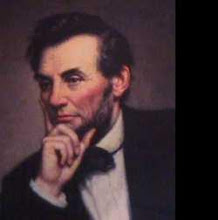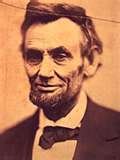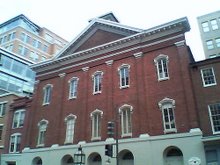
So you don’t believe in curses. Consider this one. Every president elected in a zero year between 1840 and 1960 has died in office, some by assassination. Lincoln was one of these.
What’s so strange about this? Shawnee Chief Tecumseh’s brother is credited with making it happen. It all started with the Battle of 1811, when William Harrison successfully attacked Tecumseh’s village along the Tippecanoe River in an attempt to gain territory for white westward expansion.
Supposedly, Tecumseh’s brother Tenskwatawa, also known as the Prophet, set a curse against Harrison and future White House occupants who became president with the same end number as Harrison.
The result? Harrison, elected in 1840, died in office of pneumonia; Lincoln, elected in 1860, was assassinated; Garfield, elected in 1880, was assassinated; McKinley, elected in 1900, was assassinated; Harding, elected in 1920, died of a heart attack while in office; Roosevelt, elected in 1940, died of a stroke while in office; Kennedy, elected in 1960, was assassinated. But wait, what happened to Reagan, elected in 1980? Though he was attacked, he lived. According to some, he broke the curse.
This curse is also known as the curse of Tippecanoe, the zero-year curse, the twenty-year curse, and the twenty-year presidential jinx. Why in the world isn’t it called the Tenskwatawa curse, if he’s the one who pronounced it?
Also, how strange that one of Lincoln’s favorite generals, William Tecumseh Sherman, was named for the Prophet’s brother. What could that possibly mean? Nothing really, but I couldn’t resist bringing it up. If you want to know more about who really killed Lincoln (and all this time you thought it was Booth), check out The Tecumseh Curse and More Tecumseh Curse.
And remember, choose blessings, not curses.












No comments:
Post a Comment